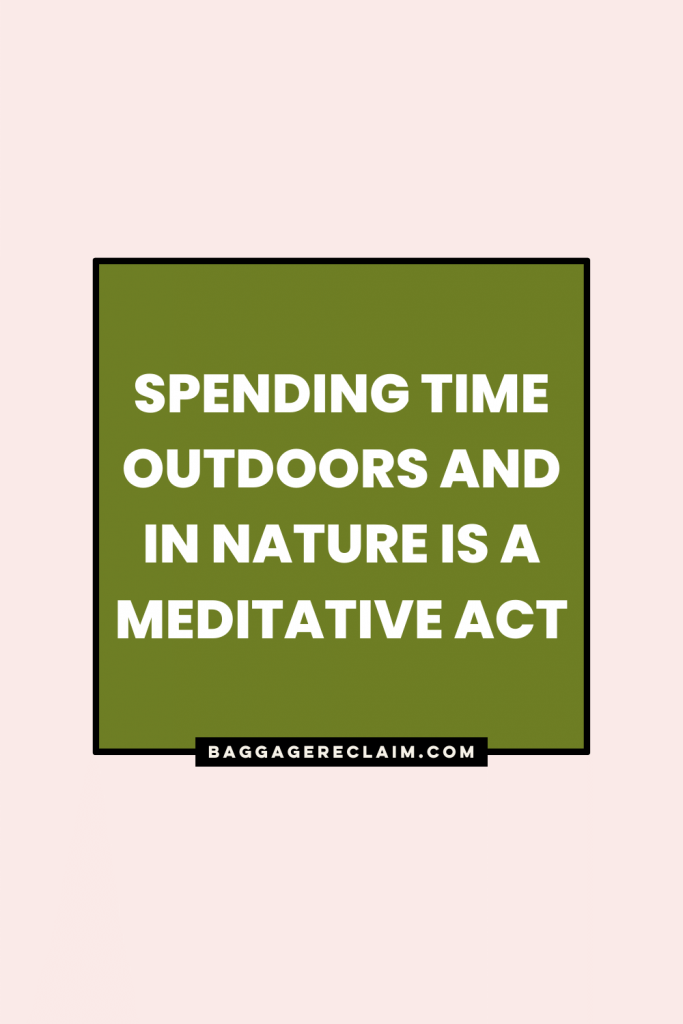Up until several years back, I didn’t regard myself as an ‘outdoorsy’ type of person. When I consider that I now feel out of sync if I don’t spend time outdoors each day and that I also spent most of my childhood outside, that old belief is hilarious. I grew up less than five minutes walk from the sea in a village in south Dublin.
As is the way for those of us who had ‘retro’ childhoods where your parents chucked you outside at every chance and told you not to come back until your tea was ready, I roamed, explored and played in fields and woods. I climbed trees, got bitten by midges and horseflies, picked berries and romped about barefoot.
Adulthood with its studying, partying, travelling and then working arrived, though, and I forgot my relationship with the outdoors. Still, looking back, I recall how some of the pivotal moments in my life were off the back of time spent in nature where, just like in childhood, I had an honest conversation with myself or a loved one. In recent years as I’ve navigated self-employment, grief and increasing self-care, using nature to aid communication and wellbeing has become pivotal.
It’s fascinating how we might have unexpressed thoughts and feelings rumbling around inside that spring forth as we walk.
Walking and talking, though, once we detach from home and become immersed in our surroundings and the rhythm of our body, becomes meditative.
Even when we’ve started our walk feeling wound-up, stressed or upset, we can’t help but surrender to the energy of life around us. We become aware of the crackling twigs underfoot and the birds we don’t listen to when we’re at home. The views grab us, and the smells make us pay attention. Climbing over logs, dodging poo, muddy puddles and getting scratched by branches; navigating rocks and copious sea pebbles, or wrapping ourselves up against the wind, force us to be there. We can’t help but feel alive even though we might feel low.
With each step, we gradually release and relax. The tension defuses. And then the courage and bandwidth to tentatively broach a subject builds because we’re becoming open enough to feel our feelings and notice our thoughts. And, so, we start talking.
Getting into deep and what might feel like tricky and sticky conversations is something that we humans tend to avoid. Time outdoors, however, often changes this.
Nature becomes a mediator, a neutral party for us to offload in the presence of.
Expressing ourselves can seem easier and less confrontational when we’re outdoors instead of, for example, sitting across from each other. Let’s say we’re feeling stressed and miffed because of chores. Broaching this topic away from home as we walk makes it feel less like we’re opening up a discussion amid Exhibit A through Z.
Sometimes, when we’re face to face, we’re so busy trying to read the other party’s facial expression and, yes, projecting our version of events and what we’re feeling and thinking that our intentions and message become jumbled.
Walking and talking is a way of being vulnerable without being too focused on the fact that we’re doing so.
We have to simultaneously be aware of our surroundings and ourselves and the other person being in motion. We can’t try to read their face and body language and walk and talk. Instead, we have to be conscious, aware and present and trust the flow of the conversation. It makes us notice ourselves and the person we’re walking with instead of the distinction being blurry. We also remember ours and their humanness.
Even when we’re not with someone, walking in nature and getting into the rhythm of our own nature can give us the clarity and impetus to talk with a loved one on our return. It’s tricky to hold our breath when we’re out in nature, something, incidentally, many of us do day to day. We juggle stress and tensions without even realising we’re juggling. And we postpone self-care until a future point when we hope life will let up enough to give us the time.
Nature demands that we breathe with it, that we connect with its rhythm. And that recalibration and shift allow us to breathe in and out enough to value the benefit of reconnecting with a loved one (or ourselves) through discussion.
A slightly different version of this article was featured in a print edition of In The Moment magazine. Sadly the magazine was shuttered due to the pandemic.
Are you ready to stop silencing and hiding yourself in an attempt to ‘please’ or protect yourself from others? My book, The Joy of Saying No: A Simple Plan to Stop People Pleasing, Reclaim Boundaries, and Say Yes to the Life You Want (Harper Horizon), is out now.

Pin for later


 Add to favorites
Add to favorites 